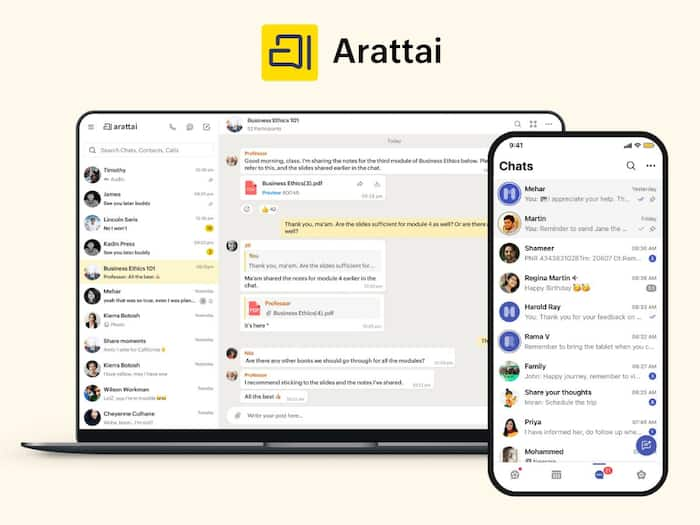
Written By Shubham Arora
Published By: Shubham Arora | Published: Sep 27, 2025, 11:41 PM (IST)

India may soon have its own answer to WhatsApp – and the push is coming from the top. Union Education Minister Dharmendra Pradhan on Wednesday urged citizens to download and try Arattai, a messaging app developed by Chennai-based Zoho Corporation. Pitching it as a “free, easy-to-use, secure, and safe” platform, he called it a true Swadeshi alternative that aligns with Prime Minister Narendra Modi’s vision of supporting homegrown technology. Also Read: Aadhaar To Soon Allow Mobile Number Updates From Home Through Aadhaar App
The name Arattai – which means “casual chat” in Tamil – captures the app’s focus on simple, everyday conversations. Much like WhatsApp, it supports text messaging, voice and video calls, media sharing, and even status-style stories. Businesses too can use Arattai, thanks to content-sharing tools and channels that allow direct engagement with users. Also Read: Aadhaar Cards Set For Major Tech Overhaul With AI, Blockchain, And Quantum Security
Arattai instant messaging app developed by @Zoho is free, easy-to-use, secure, safe and ‘Made in India’.
Also Read: Zoho Pay UPI App Launch Soon: Expected Features, Arattai Integration, And Rollout Timeline
Guided by Hon’ble PM Shri @narendramodi ji’s call to adopt Swadeshi, I appeal to everyone to switch to India-made apps for staying connected with friends and family.… pic.twitter.com/Tptgbzgivg
— Dharmendra Pradhan (@dpradhanbjp) September 24, 2025
Zoho, the company behind Arattai, has been around since 1996. Started by Sridhar Vembu and Tony Thomas, it has grown into a global player with over 55 business apps across email, CRM, HR, and project management. Today, Zoho serves over 130 million users across 150 countries, with clients that include Amazon, Netflix, Toyota, and Deloitte. The company has long worn its motto – “Made in India. Made for the world” – as a badge of pride.
Arattai’s strongest selling point so far has been encrypted calls, giving users some level of privacy assurance for voice and video conversations. But there’s still a major caveat: unlike WhatsApp, Arattai does not yet provide end-to-end encryption for messages. That means text chats remain potentially accessible, something that could concern users who are conscious about digital privacy.
Still, the app has the government’s backing. IT and Railways Minister Ashwini Vaishnaw also spotlighted Zoho’s ecosystem, revealing that a recent Union Cabinet presentation was delivered using Zoho Show – instead of Microsoft PowerPoint. The message was clear: India can build, adopt, and rely on its own digital tools.
Can Arattai truly replace WhatsApp? Not immediately. WhatsApp’s massive user base, global network, and security features keep it ahead. But with ministers promoting Arattai and Zoho’s proven track record in enterprise software, the app has a real shot at growing – especially among users who want to support Indian alternatives.